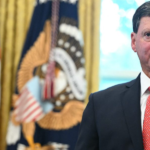Huawei, which has been sanctioned by the U.S. since 2019, is now a key part of China’s push for tech self-sufficiency, including in semiconductors and AI processors. Washington’s moves could be setting up a binary choice for those looking to buy AI processors: Nvidia, or Huawei?
The controversy over Huawei is already extending past China’s borders.
David Sacks, U.S. President Donald Trump’s AI and crypto czar, shared reports of the speech the following day, citing it as justification for repealing the Biden administration’s AI diffusion rule, which limited much of the world from accessing U.S. AI chips
Huawei confirmed to Fortune that it hadn’t sold any Ascend chips in Malaysia and that the government also hadn’t bought any.
The U.S., under the Biden administration, first imposed chip export controls on China in 2022. It subsequently tightened those export control measures on several occasions as companies found ways to make less powerful chips that complied with earlier controls.
Chip executives like Nvidia CEO Jensen Huang have strongly criticized the U.S. export control regime, arguing that it will instead encourage China to develop its own cutting-edge chips and chipmaking equipment.
Since the export control measures were imposed, China has pumped even more money into its tech industry in a bid to be self-sufficient. Huawei has been at the forefront of this push for self-sufficiency, and has had some notable successes.
The Chinese tech giant’s most recent smartphone models feature domestically-produced advanced processors. The company’s Ascend chips are also reportedly being used by Chinese AI startup DeepSeek for inference.









